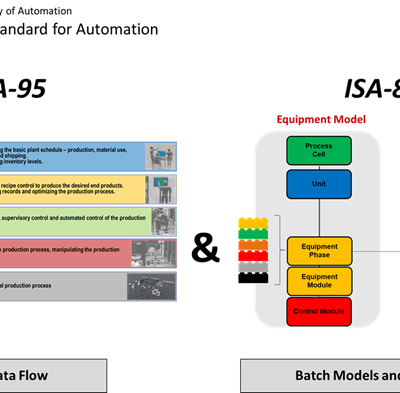Tracking manual discrete manufacturing processes can greatly benefit from off-the-shelf products.
Often, discrete manufacturing processes requiring a high level of manual operator activities that rely on paper-based Standard Operating Procedures (SOP) to specify how to manufacture their products.
Operators are responsible to perform the tasks as specified by the SOP as well as capturing the required data when requested. It is not uncommon to find plants that have automated components of the manufacturing process but require the operators to input the setpoints before initiating the required tasks. These operators are also responsible for capturing the required data and writing it on the SOPs, some of these SOP steps require capturing a date stamp as well as information of the person that performed a task or captured the data. Some customers require tracking these activities with more reliability and would like to capture information with much greater granularity.


